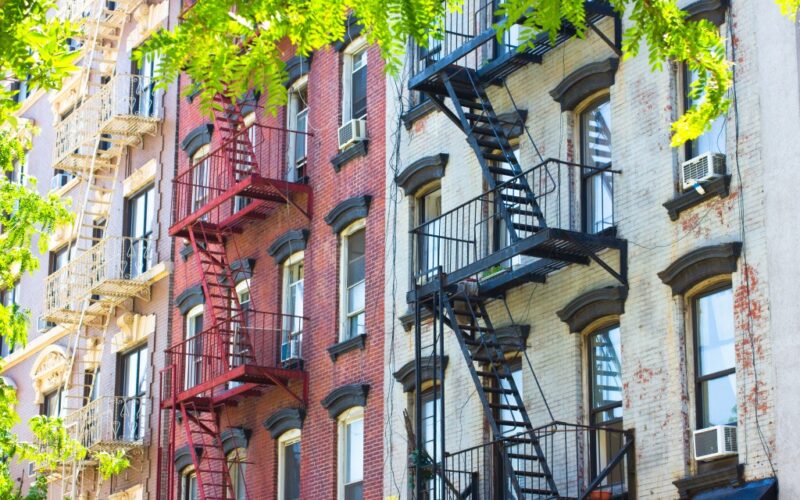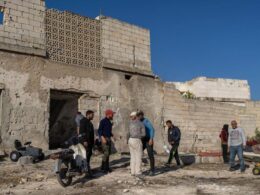New York is in the midst of one of the most severe housing crises in history. More than 130,000 residents are experiencing homelessness in our city alone, and thousands more find themselves rent-burdened, struggling to keep their housing.
The Legislature has a bill to protect an unprotected class of tenants, long overlooked and left vulnerable due to gaps in our state’s laws: ground lease co-op residents. But real estate developers are trying to stop it.
Albany must act now before it’s too late.
Originally designed to promote middle-class homeownership, ground lease co-ops grant residents ownership of their apartments and the building, while the land it occupies remains under the control of a third-party landowner. Many of these ground leases date back to the 1950s and were created by landowners who are now long gone, with the land changing hands over the years — often to ultra-wealthy real estate developers.
Despite residents owning their homes, the more than 25,000 New Yorkers living in ground lease co-ops across the state — primarily in the outer boroughs and Westchester — live without any protections or regulations surrounding their ground lease agreements. Without critical protections, ground lease co-op residents are left vulnerable to exploitation, including the looming threat of displacement.
It’s time to fix that with legislative action that ensures ground lease co-ops residents can remain in their homes, even in the event of deconversion.
Many ground lease co-ops are facing this reality, particularly in working-class neighborhoods throughout the outer boroughs — where the majority of residents earn just above the citywide median income of $76,000. In Queens, home to more than a third of the nearly 12,000 ground lease apartments statewide, communities are already under siege.
In Flushing, families at Mainstay Co-op and Murray Hill Cooperative are already battling extreme rent increases from landowners, while banks deny loans for critical repairs to their aging buildings. Just miles away in Jamaica, Hilltop Village’s 2,000 residents find themselves trapped in a deteriorating co-op.
The same playbook is unfolding at Manhattan’s Carnegie House, where tech billionaire Michael Dell’s investment firm has saddled residents with a five-fold rent increase, risking the homes of 324 families.
The consequences are dire: seniors, immigrant families, and residents with disabilities now endure dangerous, inaccessible living conditions in homes they can neither improve nor afford to abandon.
We cannot leave them behind.
The Ground Lease Co-op Bill provides three key protections to address this crisis: the ability to borrow for required repairs and capital improvements, the first chance to purchase leased land before landlords attempt to sell it to other buyers, and tenant protections if the co-op is forced to deconvert, including reasonable first rents for existing residents.
The proposed legislation aligns ground lease co-op regulations with existing practices under the Rent Stabilization Law, granting ground lessees the same protections as all other classes of rent-stabilized residents and a pathway to stay in their homes.
We passed legislation last year allowing ground lease co-op residents to initiate renewals or extensions before their leases expire — a much-needed change giving power back into the hands of the residents. It is now up to the full Legislature to enshrine standard tenant rights for ground lease co-ops by passing these remaining provisions.
By establishing these rights, we can shield thousands of ground lease co-op residents from massive rent hikes that could otherwise force them out of their homes as many existing lease agreements begin to expire. We can enhance co-op residents’ capacity to make necessary improvements on their buildings and provide a pathway to purchase the land beneath their homes, saving thousands of middle-class homes across our state.
With this year’s legislative session coming to an end, I urge my colleagues in the Assembly to join the Senate in making it a priority to defend the homes of these New Yorkers. Failing to act — to pass this legislation and safeguard the housing of ground lease co-op residents — will only lead to more New Yorkers being pushed out of their homes (homes that they rightfully own) and in dire need of affordable housing. Housing that, frankly, does not exist today.
The 25,000-plus ground lease co-op residents who call New York home come from all walks of life. They are schoolteachers, nurses, veterans, first responders, and retirees. They are lifelong residents, embedded in the fabric of our neighborhoods, city, and state. This is what they undeniably have in common: the homes they cherish, and the right to stay in them.
Let’s protect them before it’s too late.
Kim is a Queens assemblyman from District 40, covering portions of Whitestone, Flushing, College Point, and Murray Hill.








